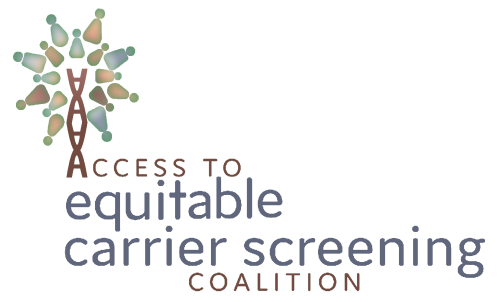Healthcare Providers For ECS
The American College of Obstetricians and Gynecologists (ACOG) recommends that all individuals who are pregnant or planning a pregnancy be offered carrier screening.
ACOG also recognizes that expanded carrier screening can overcome the limitations of self-reported ancestry and identify pregnancies at risk for serious genetic conditions across all ethnicities in an equitable manner.
The actionable information from ECS empowers patients and providers to plan appropriate care for current or future pregnancies.
Every Family Deserves Access to Expanded Carrier Screening
- Clinically Actionable
- Equitable Risk Assessments
- Limitations of Ethnicity Based Screening
- Reduction in the Diagnostic Journey
Did you know? As many as 77% of individuals used their ECS results to make changes to their pregnancy planning.
- Pre-conception
- Pre-implantation genetic testing + invitro fertilization (PGT-IVF)
- Usage of donor gametes
- Adoption
- Pregnancy Avoidance
- Prenatal
- Prenatal diagnosis
- Confirmation testing at delivery
- Speaking to a specialist
- Finding the right place to deliver
- Termination
- Early knowledge also allows individuals to plan and prepare for an affected child.1
Did you know? 10% of individuals had a majority genetic ancestry that was different from their self-reported ethnicity potentially leading to inaccuracies in care.
40% of Americans can’t correctly identify the ethnicity of all four grandparents.1
1 of 7 new marriages is between individuals of different ethnic backgrounds.2
Did you know? On average, it takes an individual with a rare disease, eight years to receive a diagnosis.
All of the conditions on ECS panels are rare disorders and early identification can help decrease the diagnostic journey individuals face and in many cases improve quality of life with early treatment and intervention.
Expanded carrier screening has various outcomes that include:
- A risk for intellectual disability (e.g. fragile X syndrome, Smith-Lemli-Opitz)
- Limited or not treatment options (e.g. Bloom syndrome)
- A shortened life expectancy (e.g. Tay-Sachs disease, cystic fibrosis)
- Improvement with early intervention (e.g. Phenylalanine hydroxylase deficiency (PKU))
How You Can Advocate for Expanded Carrier Screening
News For Medical Providers
Learn how you can help make ECS accessible
Keep up to date and find ways to help

